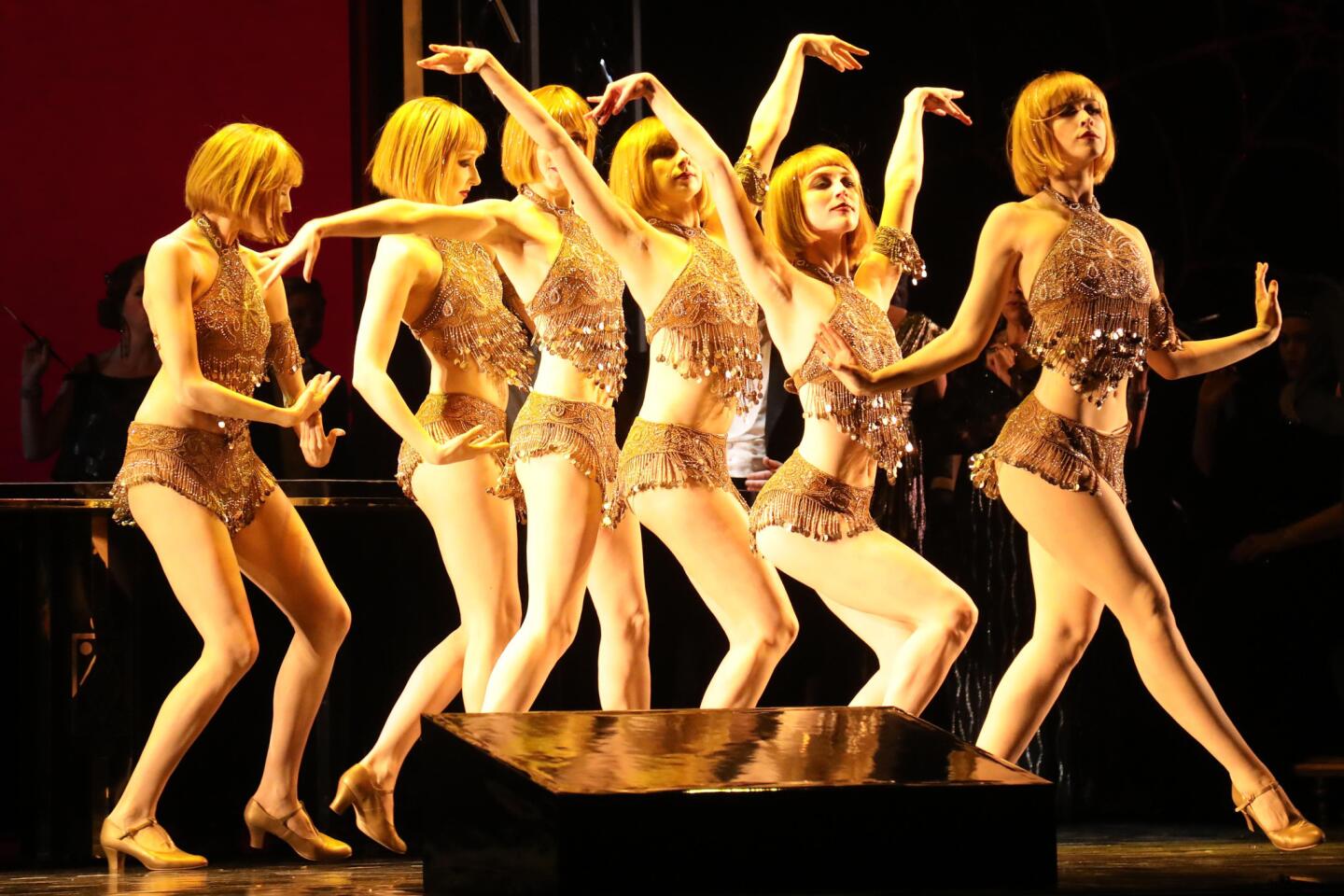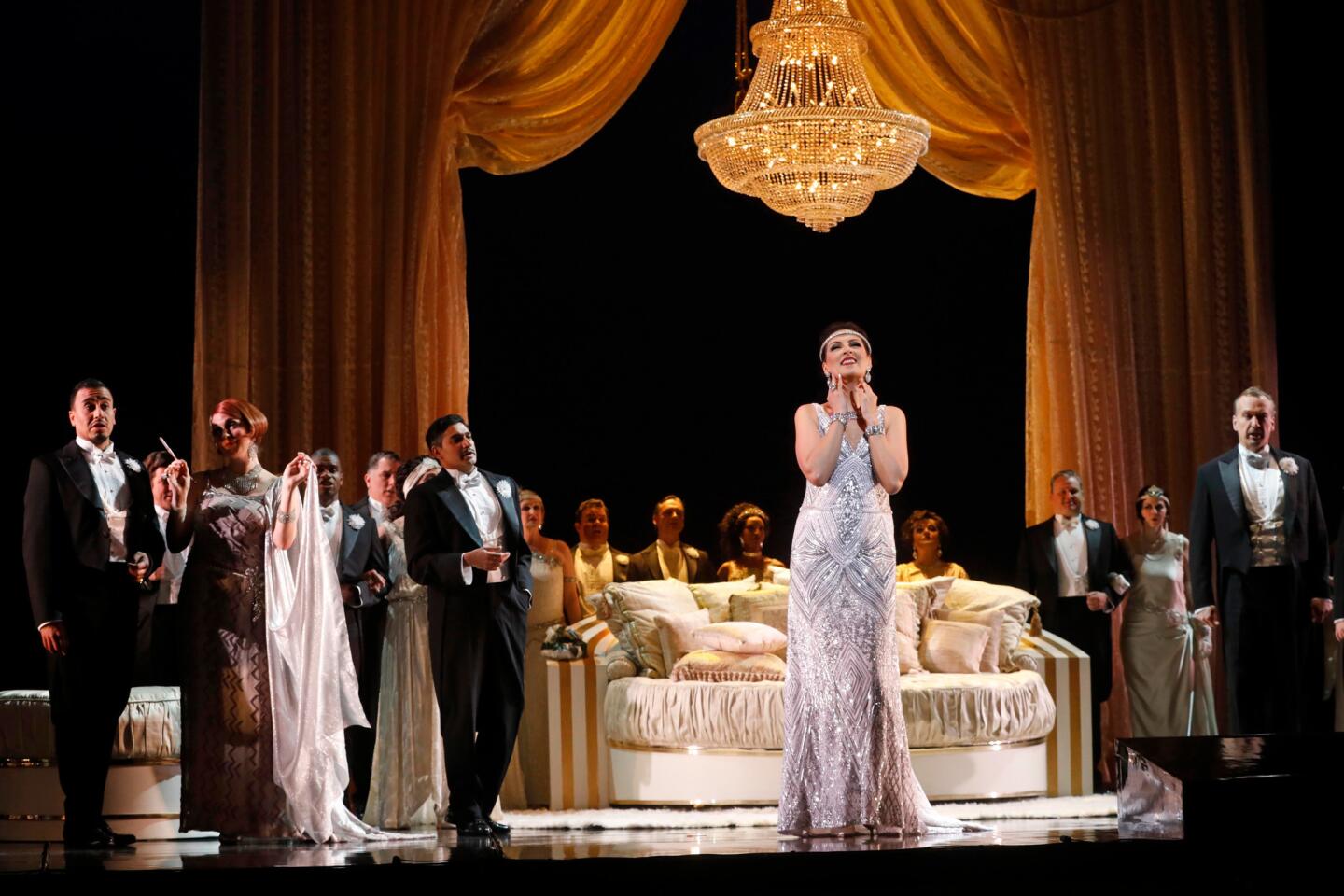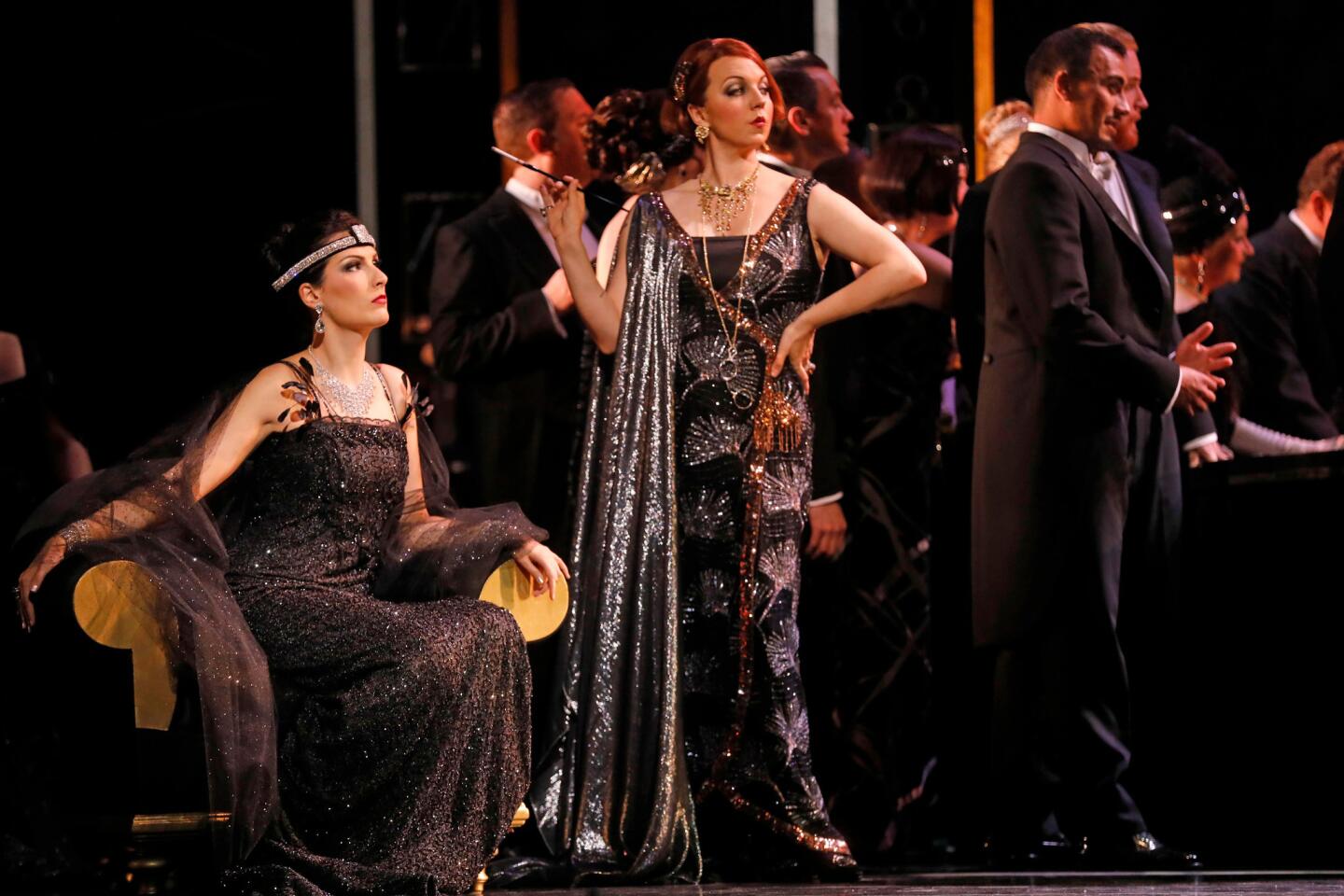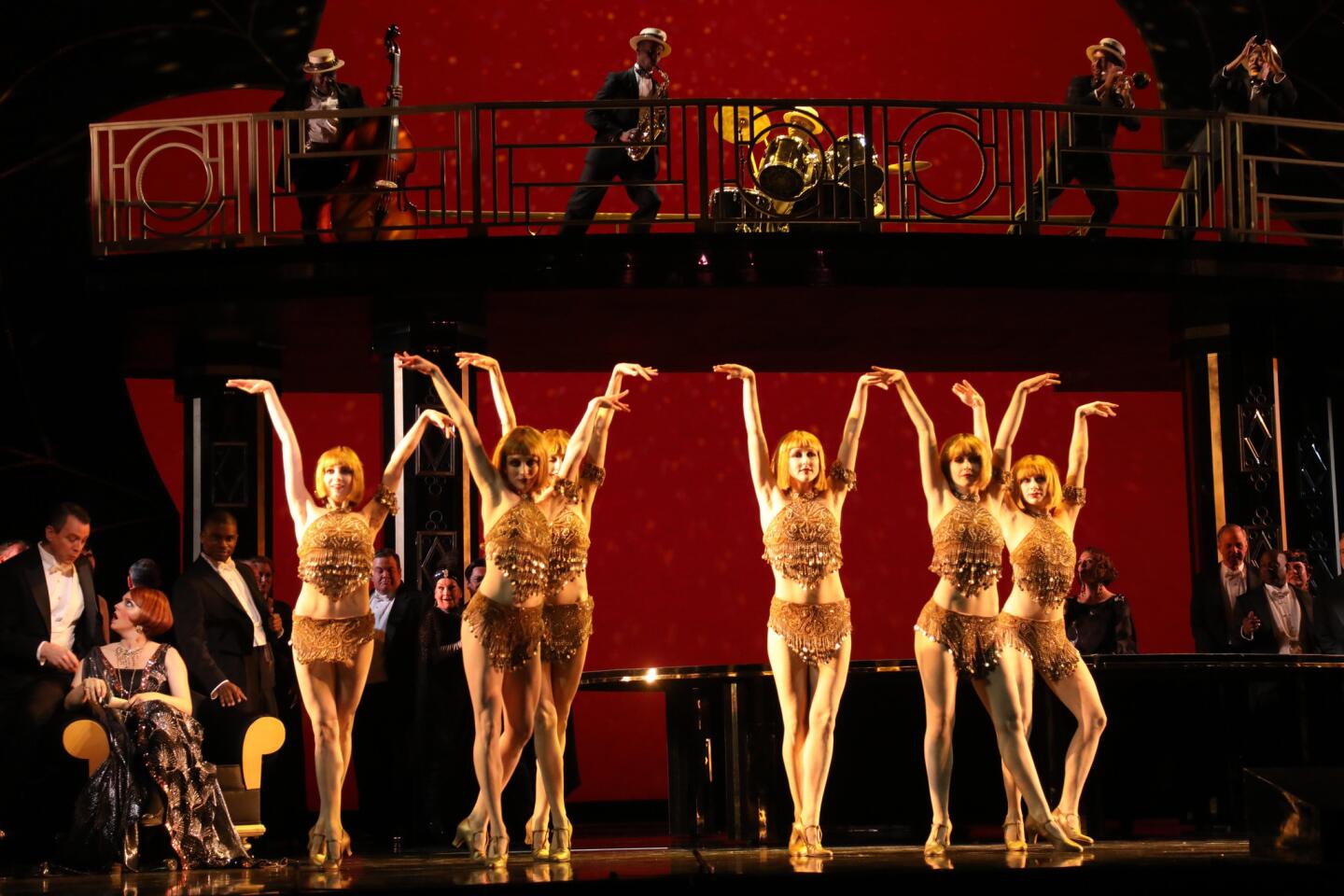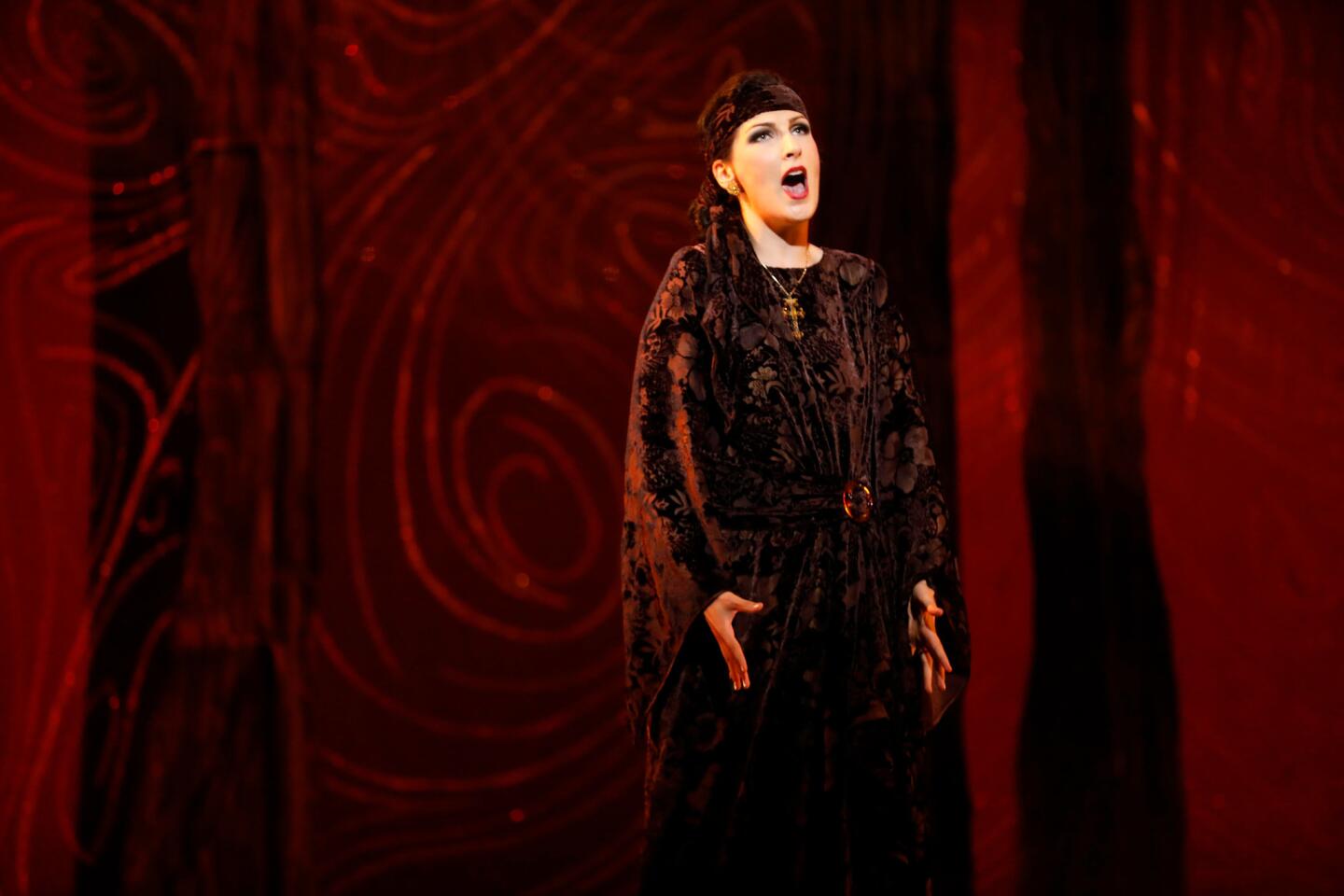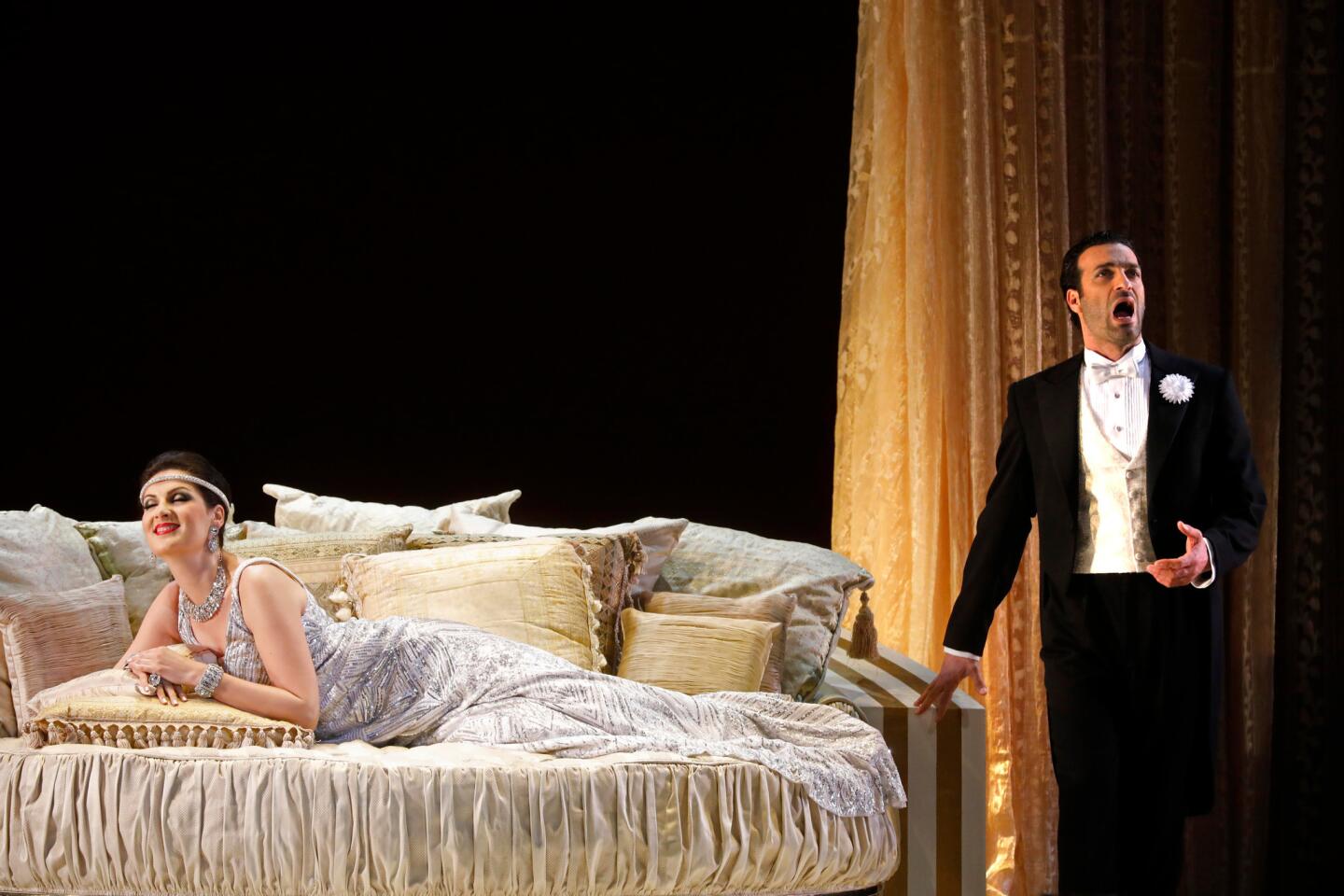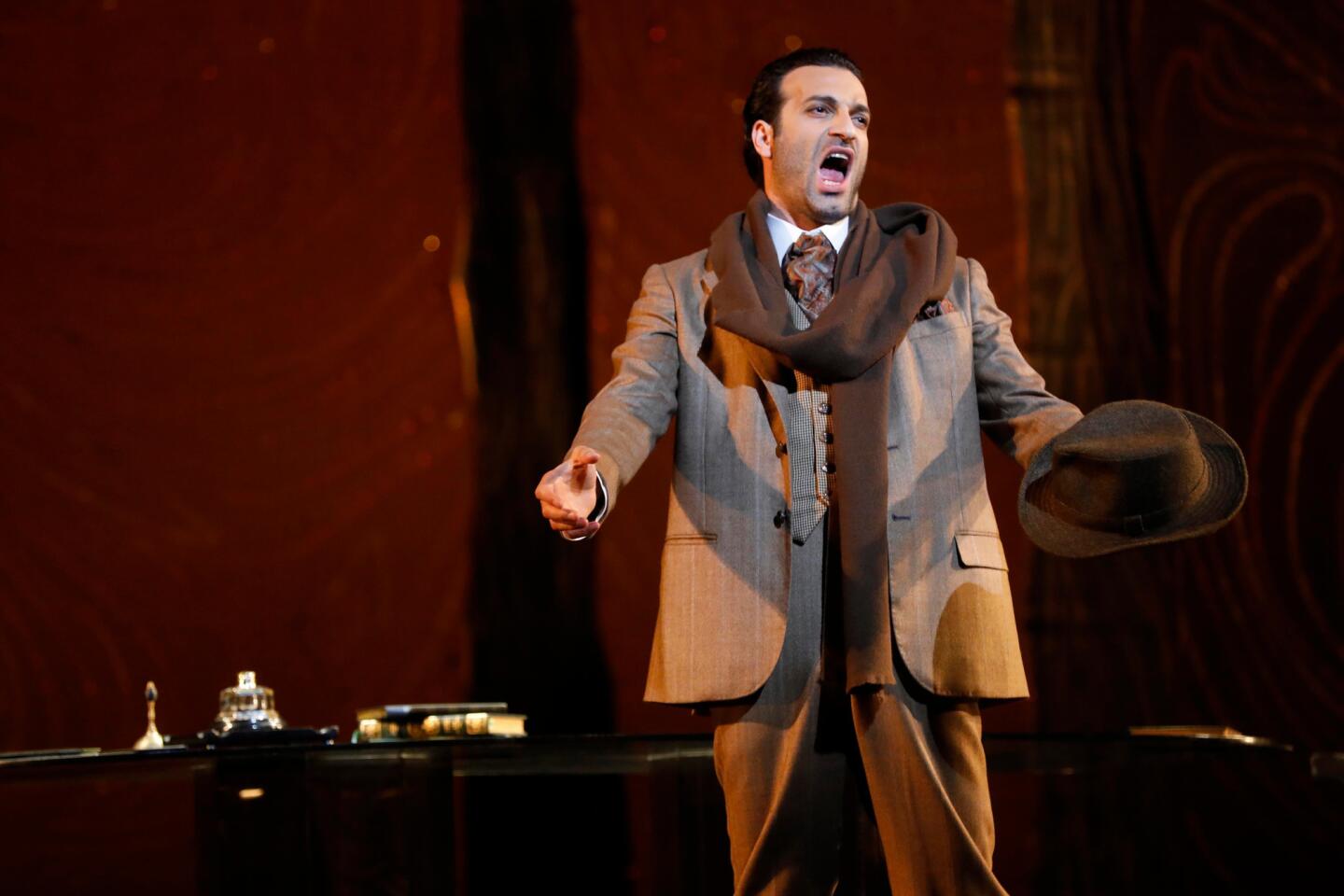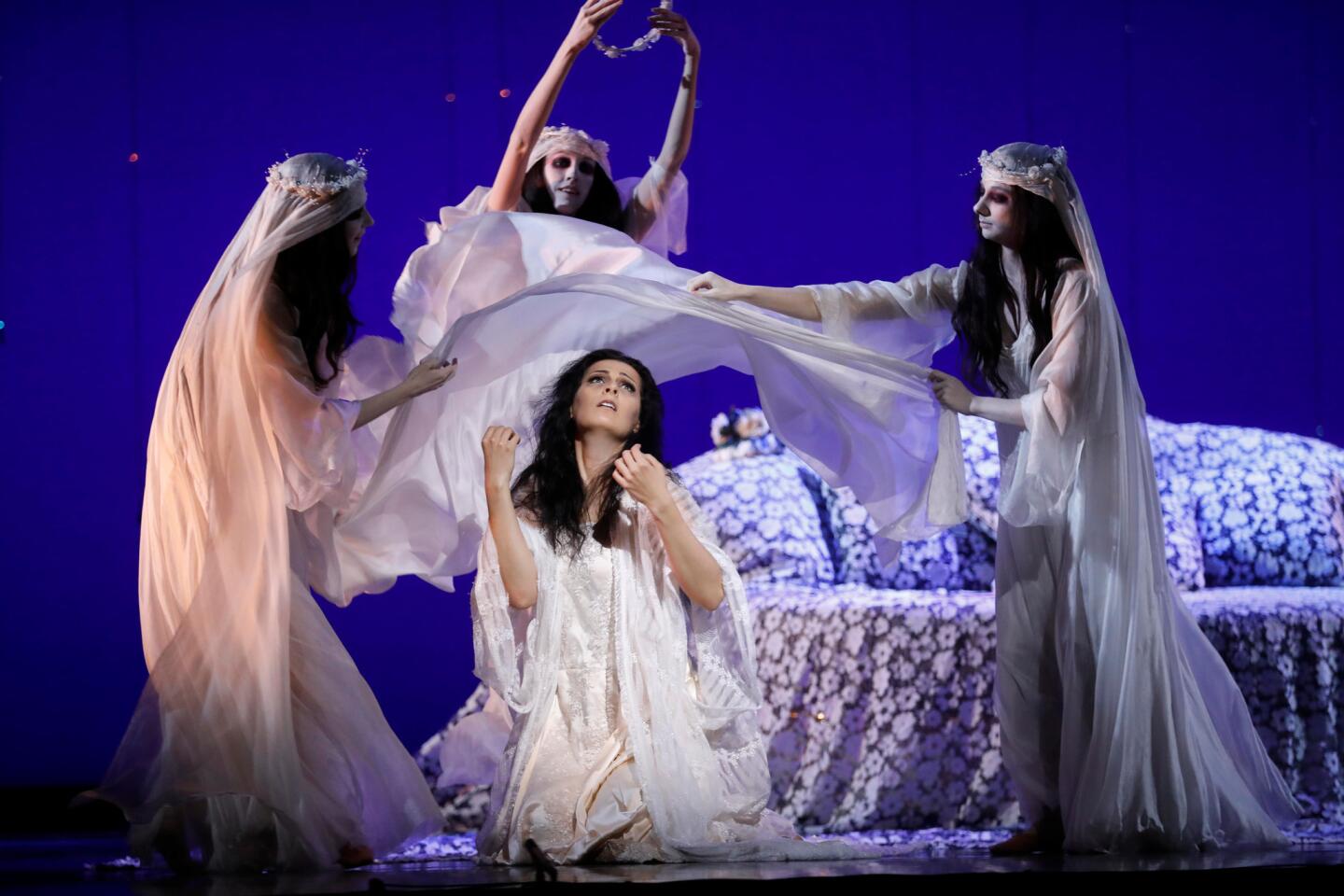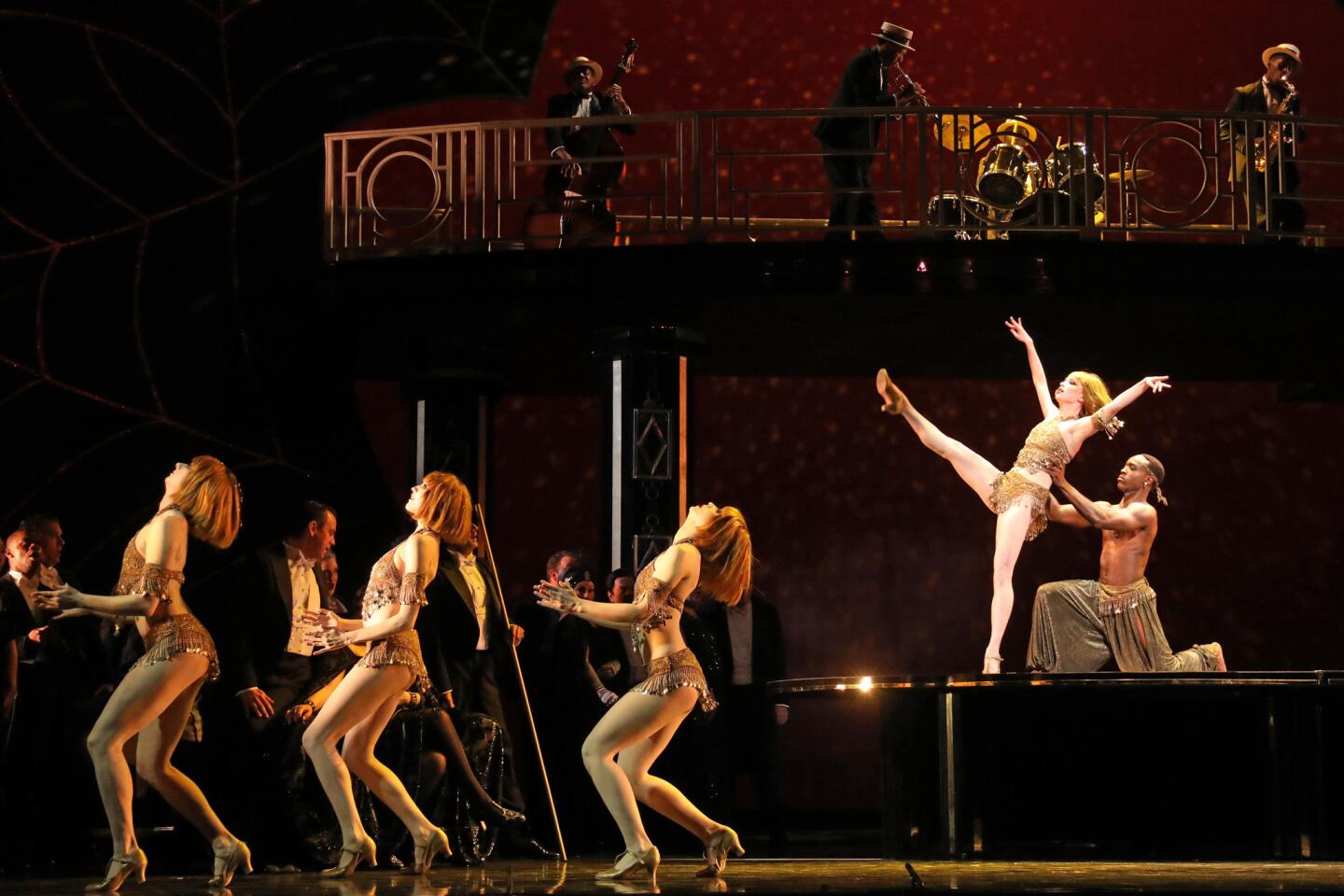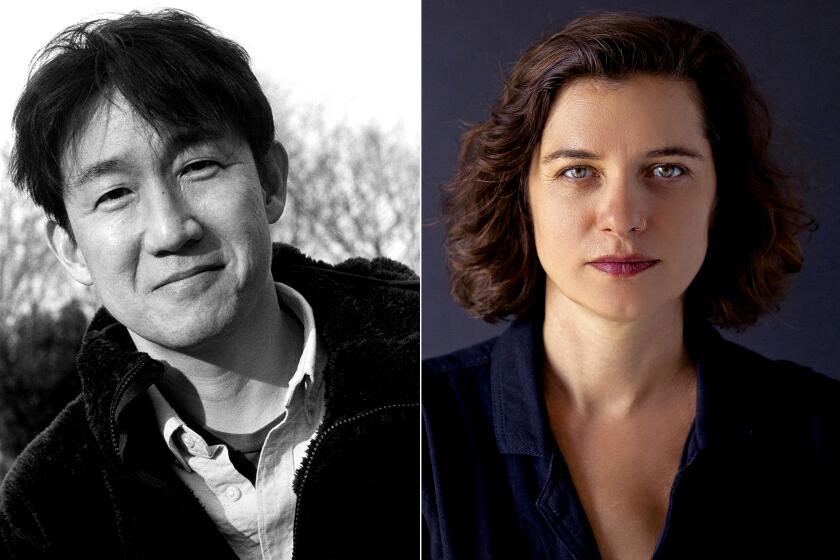Review: L.A. Opera brings back its ‘20s take on ‘Traviata,’ and the singing shimmers
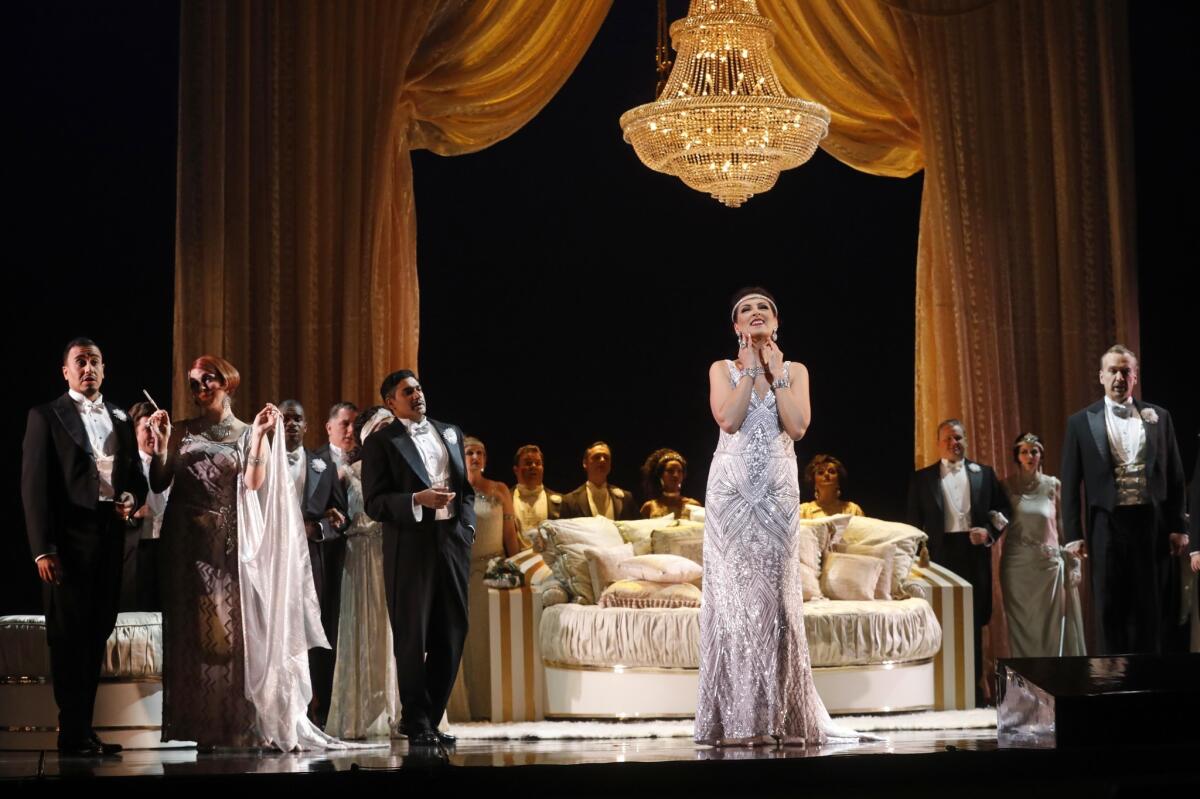
“La Traviata” again. Opera goers have a hard time avoiding it, even if they want to, but apparently they don’t. Verdi’s masterpiece (based on a novel by Alexandre Dumas fils about a courtesan who falls in love and dies of tuberculosis) is reliable box office for opera companies, and this season it was the most performed opera in the world, according to operabase.com.
A good-sized throng showed up Saturday night at the Dorothy Chandler Pavilion for L.A. Opera’s “Traviata” and seemed to have a good time of it. There were many things to admire and ponder.
Marta Domingo’s production, first seen here in 2006 and revived in 2014, is an Art Deco “Traviata,” updated to the Roaring ’20s from mid-19th century Paris, and populated by flappers who dance the Charleston and other period signifiers. The sets are luxuriously appointed and lighted, and the fashions are flashy and often gorgeous. It’s the kind of revision that is probably harmless and that happens a lot with repertory staples in an attempt to freshen them up.
The trouble is there’s not much of a deep connection between the two eras; the updating sheds no new light on either. Better points were made in conductor James Conlon’s introductory note. The courtesan Violetta is one of society’s castoffs, made to renounce her lover by a man, sent off to die alone merely because she has engaged in illicit sex — illicit for women, not men. In the age of #MeToo and the fight for women’s rights, “Traviata” is newly relevant.
Luckily, Domingo’s production is mostly decorative, and Verdi’s “Traviata” can be seen through it, as it were. It was certainly heard through it Saturday, and most effectively. In the title role, Romanian soprano Adela Zaharia, introduced here last year as Gilda in “Rigoletto,” made a strong and pleasing impression. The voice was equal parts shimmer and opulence, and she gamboled about its compass with ease. (The coloratura end to Act 1 was especially spectacular.) Her pianissimo phrases seemed to float in the air. At fortissimo and in the high range, she retained her beautiful tone, no fuss. Zaharia’s stage presence was elegant and assured too.
Her Alfredo, Kosovan tenor Rame Lahaj, in his company debut, proved hardly to be outdone. The music poured out of him eloquently and ardently, his lyricism never tarnished with harsh excess at the louder dynamics. He’s a singer, not a belter. He showed himself an unselfish partner with Zaharia in the duets as well.
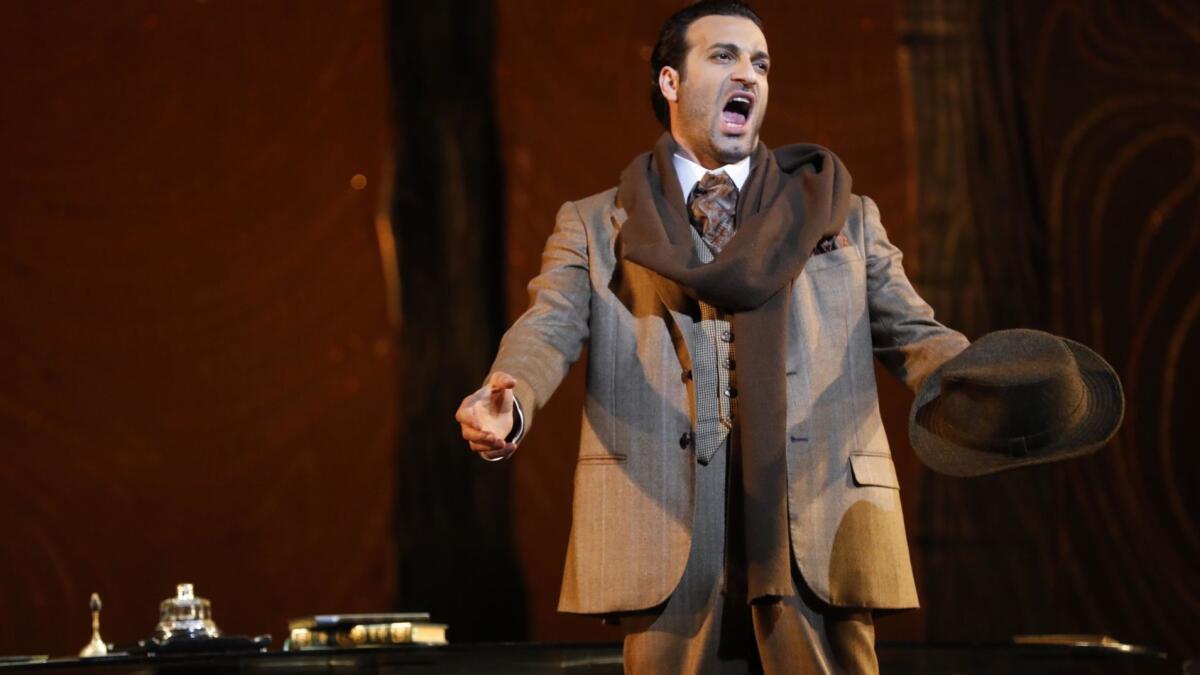
Ukrainian baritone Vitaliy Bilyy provided a sturdy, firm-voiced Germont, who projected the character’s changeable feelings convincingly. (Charles Castronovo and Igor Golovatenko take over Alfredo and Germont later in the run.) Smaller roles were handled deftly, with Wayne Tigges (Baron Douphol) and Christopher Job (Dr. Grenvil) standouts.
In the pit, Conlon and the orchestra sounded terrific from beginning to end. Conlon’s reading was perfectly gauged, transparent and propulsive, and able to pounce on Verdi’s more dramatic pronouncements without undue heaviness. His taut collaboration with the singers was invisible to the ear. The L.A. Opera Chorus, prepared by Grant Gershon, sang with robust precision.
Occasionally, Domingo (a singer named Plácido is her husband) went a little too far, as in Act 2, at Flora’s lavish party, here complete with cavorting jazz band, disco ball and a troupe of Betty Boopsy dancers (girls just want to have fun) who could have come from the old Dean Martin show. The audience loved it, though, as they did the hunky solo dancer, Louis A. Williams Jr., as a shirtless matador.
The whole production wants to have a little fun. But not too much fun. An announcement before curtain asked the audience to refrain from singing along.
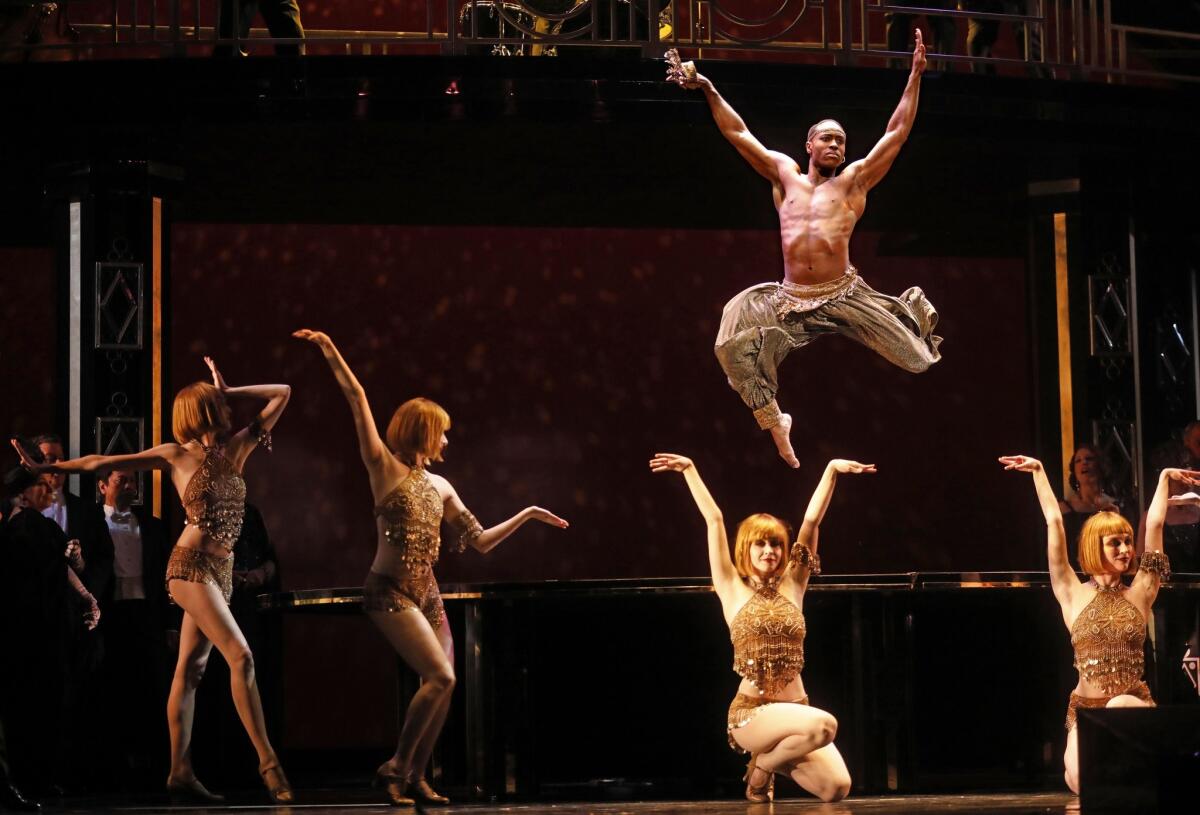
=====
L.A. Opera’s ‘La Traviata’
Where: Dorothy Chandler Pavilion, 135 N. Grand Ave., L.A.
When: 2 p.m. June 9, 7:30 p.m. June 13, 2 p.m. June 16 and 7:30 p.m. June 19 and 22
Tickets: $34 and up
Info: (213) 972-8001 or LAOpera.org
=====
See all of our latest arts news and reviews at latimes.com/arts.
More to Read
The biggest entertainment stories
Get our big stories about Hollywood, film, television, music, arts, culture and more right in your inbox as soon as they publish.
You may occasionally receive promotional content from the Los Angeles Times.
